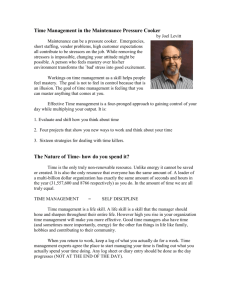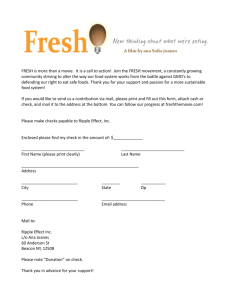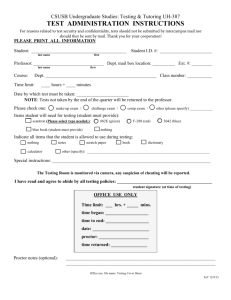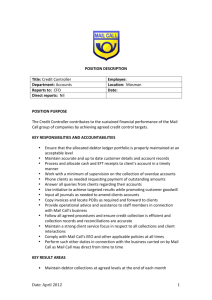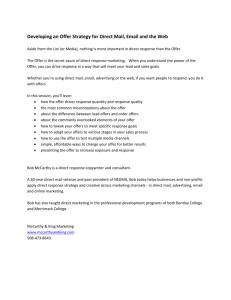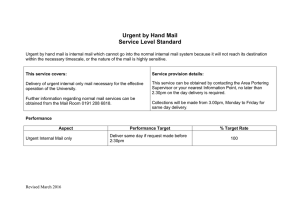reflections on time management
advertisement
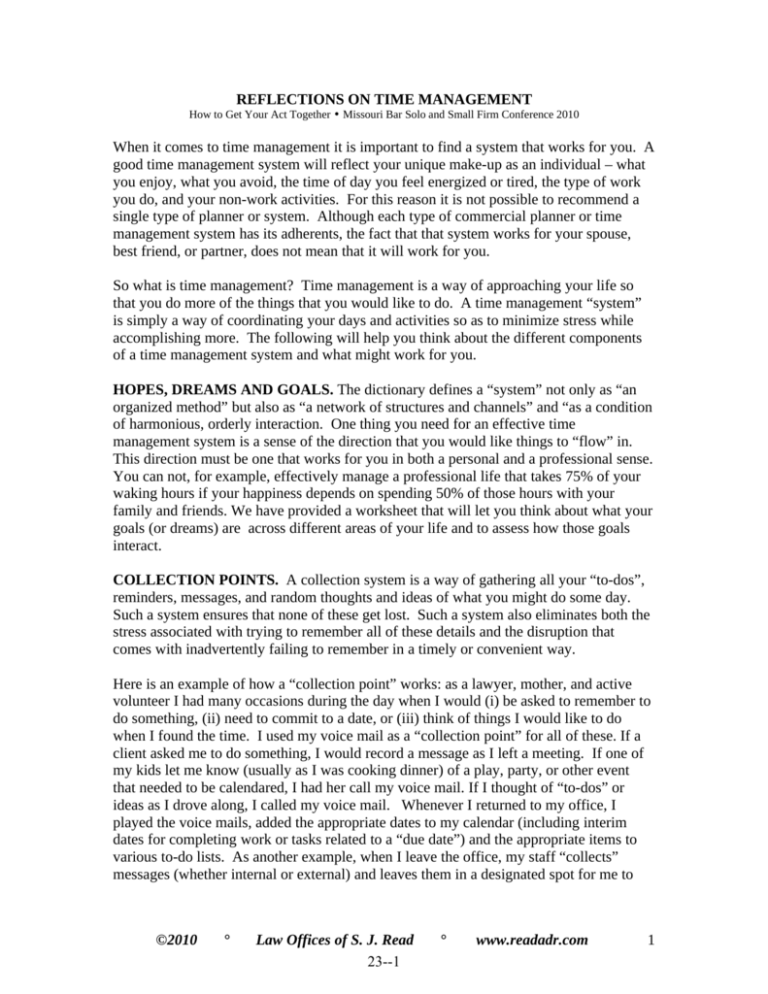
REFLECTIONS ON TIME MANAGEMENT How to Get Your Act Together • Missouri Bar Solo and Small Firm Conference 2010 When it comes to time management it is important to find a system that works for you. A good time management system will reflect your unique make-up as an individual – what you enjoy, what you avoid, the time of day you feel energized or tired, the type of work you do, and your non-work activities. For this reason it is not possible to recommend a single type of planner or system. Although each type of commercial planner or time management system has its adherents, the fact that that system works for your spouse, best friend, or partner, does not mean that it will work for you. So what is time management? Time management is a way of approaching your life so that you do more of the things that you would like to do. A time management “system” is simply a way of coordinating your days and activities so as to minimize stress while accomplishing more. The following will help you think about the different components of a time management system and what might work for you. HOPES, DREAMS AND GOALS. The dictionary defines a “system” not only as “an organized method” but also as “a network of structures and channels” and “as a condition of harmonious, orderly interaction. One thing you need for an effective time management system is a sense of the direction that you would like things to “flow” in. This direction must be one that works for you in both a personal and a professional sense. You can not, for example, effectively manage a professional life that takes 75% of your waking hours if your happiness depends on spending 50% of those hours with your family and friends. We have provided a worksheet that will let you think about what your goals (or dreams) are across different areas of your life and to assess how those goals interact. COLLECTION POINTS. A collection system is a way of gathering all your “to-dos”, reminders, messages, and random thoughts and ideas of what you might do some day. Such a system ensures that none of these get lost. Such a system also eliminates both the stress associated with trying to remember all of these details and the disruption that comes with inadvertently failing to remember in a timely or convenient way. Here is an example of how a “collection point” works: as a lawyer, mother, and active volunteer I had many occasions during the day when I would (i) be asked to remember to do something, (ii) need to commit to a date, or (iii) think of things I would like to do when I found the time. I used my voice mail as a “collection point” for all of these. If a client asked me to do something, I would record a message as I left a meeting. If one of my kids let me know (usually as I was cooking dinner) of a play, party, or other event that needed to be calendared, I had her call my voice mail. If I thought of “to-dos” or ideas as I drove along, I called my voice mail. Whenever I returned to my office, I played the voice mails, added the appropriate dates to my calendar (including interim dates for completing work or tasks related to a “due date”) and the appropriate items to various to-do lists. As another example, when I leave the office, my staff “collects” messages (whether internal or external) and leaves them in a designated spot for me to ©2010 ° Law Offices of S. J. Read 23--1 ° www.readadr.com 1 pick up and review. The same is true of mail. Regardless of who receives or picks up the mail, it is left in a designated spot to be “collected” by me. SORTING “BUCKETS”. While a “to-do” list is helpful, a series of lists that help you “sort” according to various priorities or options is even more helpful. You can, for example, distinguish between short term and long term projects; items for immediate action and ideas to be revisited; administrative work and client work; items that are urgent and important, urgent but not important, important but not urgent, etc. This will help you set priorities, delegate effectively, avoid unnecessary “crises”, and, in general, to lead a more fulfilling life. Once you effectively start sorting you will find yourself naturally grouping actions and tasks in ways that efficiently use your time (such as running errands on the way back from a client, or creating a new form to be used in future matters as you work on a current matter). DISTRIBUTION POINTS. Once you identify and sort what needs to be done over a particular time frame, think about the most effective way to “distribute” that work within your schedule. First, what can be delegated in whole or in part, and if delegated when and it what form do you need it back by? How are assignments made, documented and followed up on? This could be at a regular staff meeting, by a daily exchange of lists and related notes, or through a computer program. What tasks can be accomplished by a short phone call? Put that list by your phone to work through as scheduled calls are postponed or delayed. What goes in your briefcase to be read in the evening or on a trip? What goes on a notepad to remind you when you are running errands of something that could be picked up? Your trash can is also a distribution point. If something is neither important nor urgent, throw it out. FOCUSING PERIODS. Some tasks – especially legal tasks – require concentrated effort and are consistently put off because the lawyer has not scheduled times that allow for that focus. Every week should have blocks of time scheduled for those tasks that require such focus. And every week (and day) should have a regular period in which the lawyer can scan the calendar and focus on the priorities for the upcoming week or day. DATA COLLECTION AND EVALUATION. Even if you do not regularly record hours, you should consider doing so for a “test period” and evaluate how you are actually using your time. I have recommended this many times to lawyers with whom I work, and the standard response I get back when they finally do so is: “Do you know how much time I have been wasting?” Well, yes, I do. So periodically stop and ask: how am I using my time? Am I making progress in the areas I wanted to make progress in? If not, why not, and what changes can be made? What interruptions or distractions can be eliminated or at least minimized? What time can be redirected toward a better use? The incremental improvements that come with regular review and evaluation can pay very big dividends over the long term. We have also provided a separate list or resources on time management and we recommend that you review these and choose one or more to read and study. ©2010 ° Law Offices of S. J. Read 23--2 ° www.readadr.com 2
